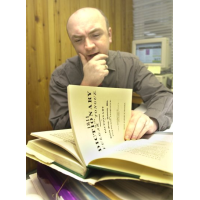Do we swear more now than we did 200 years ago?

Linguist, Dr Tony McEnery, has been tracing the origins and use of swearing throughout history and says that slang and 'bad' language is nothing new, though some of the findings of the research are surprising 'Women are 5 times more likely than men to use swear words in reported speech, or when describing an event or conversation to someone else. We don't know yet whether women report conversations more faithfully, use more reported speech or if they just get sworn at more. the hypotheses are all intriguing!'
Yet as well as new findings, old taboos have been confirmed 'Words for sex, sex organs and excrement occur again and again in our data and those are taboos shared throughout the ages.'
Dr McEnery has found that through the ages Universities have been a notable source of slang with students reflecting the obsessions of student life by making up their own code language for drinking and sex. By comparing modern phrases with the words undergraduates used 200 years ago he has found the words change, but the underlying topics of slang can remain the same; an example of modern student slang for getting very drunk is 'klangered, trollied or mullered' in 1811 it was slang to call someone who was drunk ' ensign bearing' (i.e. the drinker's face was as red as the red ensign flag of British ships).
'Universities have been identified as a notable source of English slang every since the Dictionary of the Vulgar Tongue was published in 1811. Even in the early 19th Century the author felt the need to include the language of the University Wits in the dictionary as, 'Our young men of fashion are as distinguished for the vulgarity of their jargon as the inhabitants of Newgate.' '
The research has shown that some words are no longer viewed as slang and have become socially acceptable, for example 'hoax' which was a slang term used by 18th century students. Some words die and some remain unacceptable and thought of as swear words. Some change their meaning or are used differently, 'tart' for example was always used to describe a woman, now it is used to describe flirtatious men also.
Dr McEnery's findings were used to form a glossary of student slang posted on student website studet-world.co.uk, causing nation wide media interest, including The Guardian and Radio 1.